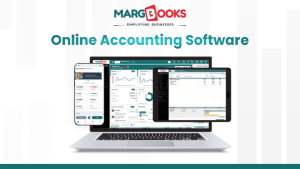Accounting standards are essential guidelines that shape the financial reporting process for organizations around the world. These standards ensure that financial statements are consistent, comparable, and transparent, providing valuable information to stakeholders, including investors, creditors, regulators, and the general public. Understanding the applicability of accounting standards is crucial for anyone involved in financial reporting, whether you are an accountant, business owner, student, or investor. In this blog, we will delve into the various aspects of accounting standards, their importance, and their applicability across different sectors.
What are Accounting Standards?
Accounting standards are authoritative guidelines for financial reporting and are the primary source of generally accepted accounting principles (GAAP). These standards dictate how financial transactions and events should be reported in financial statements. They aim to provide a common framework and language for financial reporting, making it easier to compare financial information across different entities and time periods.
Importance of Accounting Standards
Accounting standards play a pivotal role in the financial world. Here are some key reasons why they are important:
- Consistency: Accounting standards ensure that financial statements are prepared consistently across different periods and organizations. This consistency makes it easier to compare financial information and make informed decisions.
- Transparency: By providing a clear framework for financial reporting, accounting standards enhance transparency. Stakeholders can trust that the financial statements present a true and fair view of the organization’s financial position.
- Comparability: With standardized financial reporting, stakeholders can compare the financial performance of different organizations. This comparability is crucial for investors and analysts when evaluating investment opportunities.
- Reliability: Accounting standards improve the reliability of financial statements. When organizations adhere to these standards, stakeholders can have confidence in the accuracy and completeness of the reported financial information.
- Regulatory Compliance: Compliance with accounting standards is often a legal requirement. Organizations must follow these standards to meet regulatory obligations and avoid penalties.
Types of Accounting Standards
There are various types of accounting standards, each serving a specific purpose. Some of the most widely recognized accounting standards include:
- International Financial Reporting Standards (IFRS): IFRS are set by the International Accounting Standards Board (IASB) and are used by many countries around the world. They provide a global framework for financial reporting, enhancing comparability across international borders.
- Generally Accepted Accounting Principles (GAAP): GAAP are a set of accounting standards used primarily in the United States. They are established by the Financial Accounting Standards Board (FASB) and provide guidelines for financial reporting in the U.S.
- Governmental Accounting Standards: These standards apply to governmental entities and are established by bodies such as the Governmental Accounting Standards Board (GASB) in the United States. They address the unique financial reporting needs of government organizations.
Applicability of Accounting Standards
The applicability of accounting standards depends on various factors, including the type of organization, its location, and the regulatory environment. Here, we explore how accounting standards apply to different entities:
Applicability for Public Companies
Public companies, those that issue shares to the public and are listed on stock exchanges, are required to follow stringent accounting standards. In the United States, public companies must adhere to GAAP as mandated by the Securities and Exchange Commission (SEC). Internationally, many public companies follow IFRS. These standards ensure that the financial statements of public companies are transparent, comparable, and reliable, providing essential information to investors and regulators.
Applicability for Private Companies
Private companies, which do not issue shares to the public, may have more flexibility in choosing accounting standards. In some countries, private companies can choose between GAAP and IFRS, while in others, local accounting standards may apply. The choice of accounting standards for private companies often depends on their size, the nature of their operations, and the requirements of their stakeholders, such as lenders and investors.
Applicability for Small and Medium-Sized Enterprises (SMEs)
SMEs often face different accounting requirements compared to larger companies. To address the unique needs of SMEs, the IASB has developed the IFRS for SMEs, a simplified version of the full IFRS. This standard provides a cost-effective and less complex framework for SMEs, reducing the burden of compliance while still ensuring transparency and comparability in financial reporting.
Applicability for Non-Profit Organizations
Non-profit organizations, such as charities and educational institutions, also have specific accounting standards. In the United States, non-profits follow GAAP, which includes specific guidelines for the recognition and reporting of contributions, grants, and other non-profit activities. Internationally, non-profits may follow IFRS or local accounting standards tailored to their needs.
Applicability for Governmental Entities
Governmental entities have distinct financial reporting requirements due to their unique nature and objectives. In the United States, governmental entities follow standards set by the GASB, which address the specific needs of state and local governments. Internationally, the International Public Sector Accounting Standards (IPSAS) provide guidelines for public sector entities, enhancing transparency and accountability in government financial reporting.
Challenges in Implementing Accounting Standards
Implementing accounting standards can be challenging for organizations, especially when transitioning from one set of standards to another. Some common challenges include:
- Complexity: Accounting standards can be complex and require a deep understanding of accounting principles and practices. Organizations may need to invest in training and resources to ensure compliance.
- Cost: Complying with accounting standards can be costly, particularly for smaller organizations. Costs may include hiring qualified accountants, investing in accounting software, and undergoing audits.
- Changing Standards: Accounting standards are continually evolving to address new financial reporting issues and improve transparency. Keeping up with these changes can be challenging for organizations.
- International Differences: For multinational organizations, navigating the differences between various international accounting standards can be complex. This challenge requires careful planning and coordination to ensure compliance across different jurisdictions.
Benefits of Adopting Accounting Standards
Despite the challenges, adopting accounting standards offers numerous benefits for organizations:
- Improved Financial Management: Adhering to accounting standards helps organizations manage their finances more effectively, providing accurate and timely financial information for decision-making.
- Enhanced Credibility: Organizations that follow recognized accounting standards gain credibility with stakeholders, including investors, creditors, and regulators. This credibility can lead to better financing opportunities and business partnerships.
- Risk Management: Accounting standards provide a framework for identifying and managing financial risks. Organizations can use standardized financial reporting to monitor their financial health and take proactive measures to address potential issues.
- Global Comparability: For organizations operating internationally, following global accounting standards like IFRS enhances comparability and facilitates cross-border transactions and investments.
The Role of Professional Bodies and Regulators
Professional bodies and regulators play a critical role in developing, enforcing, and promoting accounting standards. Some key organizations include:
- International Accounting Standards Board (IASB): The IASB is responsible for developing and promoting IFRS. It works to enhance the transparency and comparability of financial reporting globally.
- Financial Accounting Standards Board (FASB): The FASB develops GAAP in the United States, providing guidelines for financial reporting that ensure consistency and reliability.
- Governmental Accounting Standards Board (GASB): The GASB establishes accounting standards for state and local governments in the United States, ensuring transparency and accountability in government financial reporting.
- Securities and Exchange Commission (SEC): The SEC enforces financial reporting standards for public companies in the United States, protecting investors and maintaining fair and efficient markets.
- International Federation of Accountants (IFAC): IFAC is a global organization that supports the development and implementation of high-quality international accounting standards and promotes the accounting profession.
Future Trends in Accounting Standards
The field of accounting standards is continually evolving to address new challenges and opportunities in financial reporting. Some emerging trends include:
- Sustainability Reporting: There is a growing demand for organizations to report on their environmental, social, and governance (ESG) performance. New standards and frameworks are being developed to address this need, such as the Sustainability Accounting Standards Board (SASB) standards.
- Technological Advancements: Advances in technology, such as blockchain and artificial intelligence, are transforming the accounting profession. New standards may emerge to address the impact of these technologies on financial reporting.
- Global Convergence: Efforts to harmonize accounting standards globally are ongoing. The convergence of IFRS and GAAP aims to create a unified set of standards that enhance comparability and reduce complexity for multinational organizations.
- Enhanced Disclosures: There is a trend towards requiring more detailed and comprehensive disclosures in financial statements. Enhanced disclosures aim to provide stakeholders with a deeper understanding of an organization’s financial position and performance.
Conclusion
Understanding the applicability of accounting standards is crucial for anyone involved in financial reporting. These standards provide a framework for consistent, transparent, and reliable financial reporting, benefiting organizations and stakeholders alike. By adhering to accounting standards, organizations can enhance their credibility, manage financial risks, and make informed decisions. While implementing these standards can be challenging, the benefits far outweigh the costs, making them an essential aspect of modern financial management. As the field of accounting continues to evolve, staying informed about the latest developments in accounting standards will be key to maintaining high-quality financial reporting.
Also Read:
- A Guide to Balance Sheet FormatsAre you a business owner and want to know ‘what is the balance sheet formats?’ if yes, then you have jumped on the right page. Continue reading about the balance sheet in detailed form- A balance sheet is a report… Read more: A Guide to Balance Sheet Formats
- Accounting Standards for Investment: A Simple GuideIn the intricate world of finance, understanding accounting standards for investment is paramount for individuals and businesses alike. Whether you’re an investor looking to navigate the complexities of financial reporting or a company aiming to comply with regulatory requirements, having… Read more: Accounting Standards for Investment: A Simple Guide
- Best Cloud Based Accounting Software in IndiaTraditional ways of managing finances are slowly being replaced by modern cloud based solutions. These new methods bring ease, accessibility, and effectiveness to handling your money matters. In this article, we’ll look at why cloud based accounting software is a… Read more: Best Cloud Based Accounting Software in India
- Best Online Accounting Software in IndiaCertainly! Managing money well is really important for businesses of all sizes. Thanks to online accounting software, the old, tedious task of manually keeping track of finances is a thing of the past. Now, businesses can access advanced tools and… Read more: Best Online Accounting Software in India
Frequently Asked Questions
What are accounting standards?
Accounting standards are rules for preparing financial statements. They ensure that financial information is consistent, reliable, and comparable across different organizations. These rules help businesses report their financial activities accurately, making it easier for investors, regulators, and other stakeholders to understand and trust their financial statements.
Why are accounting standards important?
Accounting standards are important because they ensure that financial reports are accurate and consistent. This helps investors, creditors, and other stakeholders make informed decisions. They also enhance transparency and trust in financial markets by providing a common framework for reporting financial data.
Who sets accounting standards?
Accounting standards are set by organizations like the International Accounting Standards Board (IASB) for IFRS and the Financial Accounting Standards Board (FASB) for GAAP. These bodies develop guidelines to ensure financial statements are clear, consistent, and comparable across different companies and countries.
What is the difference between IFRS and GAAP?
IFRS (International Financial Reporting Standards) is used globally, while GAAP (Generally Accepted Accounting Principles) is mainly used in the United States. IFRS is principle-based, offering flexibility, whereas GAAP is rule-based with specific guidelines. Both aim to ensure accurate financial reporting but differ in their approaches.
Do small businesses need to follow accounting standards?
Yes, small businesses also need to follow accounting standards to ensure their financial reports are accurate and consistent. However, they may follow simplified standards like IFRS for SMEs, which are designed to be less complex and more cost-effective while still ensuring transparency.
How do accounting standards benefit investors?
Accounting standards benefit investors by providing consistent, reliable, and comparable financial information. This helps investors assess the financial health and performance of companies, make informed investment decisions, and reduce the risk of being misled by inaccurate or inconsistent financial reports.
Are accounting standards the same worldwide?
No, accounting standards are not the same worldwide. Different countries use different standards, such as IFRS and GAAP. However, efforts are ongoing to harmonize these standards to improve global comparability and reduce complexity for multinational companies.
Can accounting standards change?
Yes, accounting standards can change. Standard-setting bodies regularly update them to address new financial reporting issues and improve transparency. Organizations must stay informed about these changes to ensure they remain compliant and their financial reports are accurate.
How do accounting standards affect financial statements?
Accounting standards affect financial statements by dictating how financial transactions and events are reported. They ensure that financial statements are accurate, consistent, and comparable, providing a clear picture of a company’s financial health and performance for stakeholders.
What are the challenges of implementing accounting standards?
Implementing accounting standards can be challenging due to their complexity, the need for training, and potential costs. Organizations may face difficulties in understanding and applying the standards correctly, requiring investment in resources, technology, and professional advice to ensure compliance.








